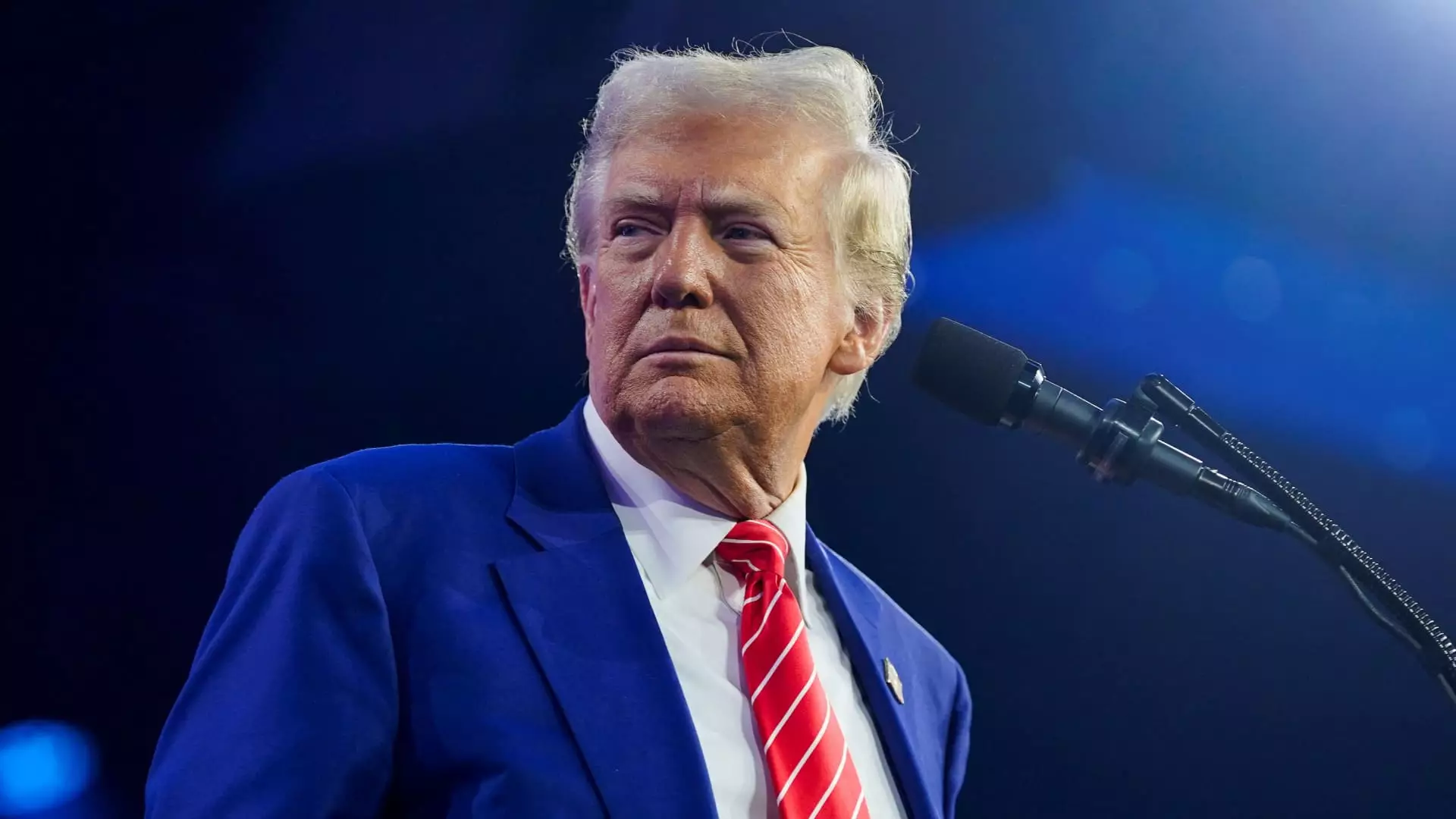In the ever-evolving landscape of American politics, rhetoric often serves as a powerful influence on international relations. Recently, President-elect Donald Trump’s Christmas Day social media posts revealed his prevailing attitudes toward Canada, Greenland, and the Panama Canal, suggesting a longing for greater U.S. control over these entities. This article scrutinizes Trump’s statements, their potential implications, and the broader geopolitical dynamics at play.
Trump’s assertion that the United States could potentially regain control over the Panama Canal stands out as a striking assertion rooted in historical grievances. The Panama Canal, a monumental engineering project completed in the early 20th century, was once under U.S. jurisdiction. However, a treaty signed in 1977 led to a gradual transfer of control to Panama, completed in 1999. By framing the conversation around the notion of “ripping off” by Panama, Trump invokes sentiments of American sovereignty and influence, distorting historical facts to serve a narrative that positions the U.S. as being wronged. This rhetoric elevates a complex historical issue into a simplistic and inflammatory claim, likely to rally his base but fostering discord in international relations.
Trump’s remarks about the canal also reflect a broader issue in U.S.-Panama relations. The mention of financial investments in the canal, under the guise of “repair” funding, obscures the realities behind these agreements and negotiations. By presenting this situation as one of exploitation, Trump implies a sense of entitlement to control based on past contributions, neglecting the intricate realities of international treaties.
Perhaps more provocative is Trump’s suggestion regarding Canada: the possibility of its annexation as the 51st state. Dismissing Canadian Prime Minister Justin Trudeau’s leadership by referring to him derogatorily as a “governor” undermines the fundamental principles of sovereignty and democracy. Trump’s assertion that joining the U.S. would result in a significant tax cut and increased business growth again plays on economic anxieties but fails to recognize the complexities of Canadian governance and identity.
This proposal is indicative of a broader pattern in Trump’s discourse—leveraging economic concerns as a means to push for political and territorial realignments. It raises questions about the respect for national identities and the understanding of cross-border dynamics within North America. While he presents a hypothetical scenario beneficial to Canadians, it glosses over the nuanced nature of international collaboration and respect for independence.
Furthermore, Trump’s comments on Greenland signal a renewed interest reminiscent of his earlier attempts to purchase the territory, which Denmark, the governing nation, dismissed outright. By framing the acquisition of Greenland as a national security imperative, Trump is conflating strategic interest with a colonial mentality, disregarding the voices and rights of its indigenous population. His suggestion that Greenland “wants” the U.S. involvement further illustrates a problematic narrative where U.S. interests overshadow local autonomy and perspectives.
In foreign policy, it becomes crucial to engage with nations and regions based on mutual respect and understanding rather than the urgent thirst for resources or geopolitical leverage. Trump’s rhetoric boldly refutes these tenets, offering a vision that cultivates dominance rather than partnership.
As Trump prepares to assume office once again, his statements raise significant concerns about the direction of U.S. foreign policy. Initially marked by a transactional approach, his recent comments may lead to a more aggressive stance towards neighboring countries. By openly critiquing leaders like Trudeau and aiming to exert undue influence over the governance of foreign territories, Trump risks further straining alliances that have historically been built on cooperation.
These divisive narratives not only polarize public opinion domestically but also have ramifications for U.S.’s relationships abroad. As allies and adversaries alike tune into these pronouncements, the implications for international diplomacy could be profound. A return to rhetoric that prioritizes dominance over collaborative governance could hinder the potential for constructive engagement with Canada, Denmark, and Panama.
Trump’s holiday reflections on Canada, Greenland, and the Panama Canal showcase a complicated mix of historical misconceptions, sovereignty issues, and populist appeals. Understanding these statements within the broader context of U.S. foreign policy and historical relations is essential to grappling with the future implications of such rhetoric on American diplomacy and international stability.

